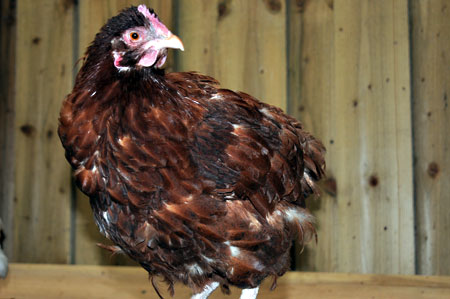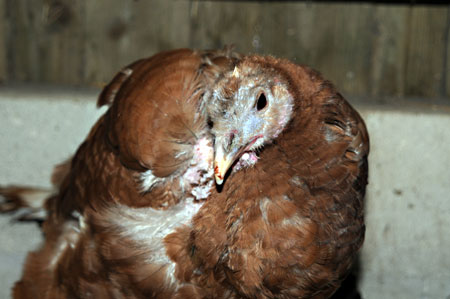Welcome to Relaxed Farming
- Alpacas
- Chickens
- Dairy Goats
- Ducks
- Geese
- Pigs
- Pygmy Goats
- Quail
- Rabbits
- Sheep
- Turkeys
- Polytunnel
- Photo Stories
- Video Stories
- Food
- Smallholding Map
- 2013
- 2014


- August
- September
- October
- November
- December
- January
- February
- March
- April
- May
- June
- July
- August


- 1
- 2
- 3
- 4
- 5
- 6
- 7
- 8
- 9
- 10
- 11
- 12
- 13
- 14
- 15
- 16
- 17
- 18
- 19
- 20
- 21
- 22
- 23
- 24
- 25
- 26
- 27
- 28
- 29
- 30
- 31
Tuesday, 24th December 2013
Another quiet day in the barn whilst outside we had the pleasure of wind, rain AND snow! We were up on the moor with the dogs when the snow came down, well, we say 'down' but actually it was being blown across us at around about 90 degrees. Fun!!! It was very wet snow and with the ground also being wet there was no chance of it sticking at all.
Meanwhile, back in the barn... As mentioned on the 9th December, this is the time of year when 'sniffles' can occur, just as with humans, and unfortunately when feeding the birds this morning we heard a few sneezes and in a couple of cases slightly rattling throats. We popped some more apple cider vinegar in the water but for the two birds that were rattling; we also gave them an injection of antibiotic (NOT the birds in these photos by the way). We make sure we always have this particular antibiotic in our medicine store as we tend to need it each autumn/winter. It is not possible to simply 'buy' such an antibiotic without going through one's vet and a good vet will only sell it if they have previously seen the animals concerned and trust the owner. As with all medicines it is important to give the right amount otherwise instead of the problem being cured, it may be made worse. With any luck just one injection (plus the apple cider vinegar which is known to help with sneezes and sniffles) should help both the birds concerned.
Our moulting Red Orpington (first picture) may finally have stopped moulting but even though new feathers are growing she is still looking a tad scrappy. Elizabeth's wounds continue to heal but as you can see by the blood on her beak, her continuous preening (whilst good) does keep opening up the scabs still and making them bleed. It is five weeks since she was attacked by the fox: it really is a long road to recovery for her.

